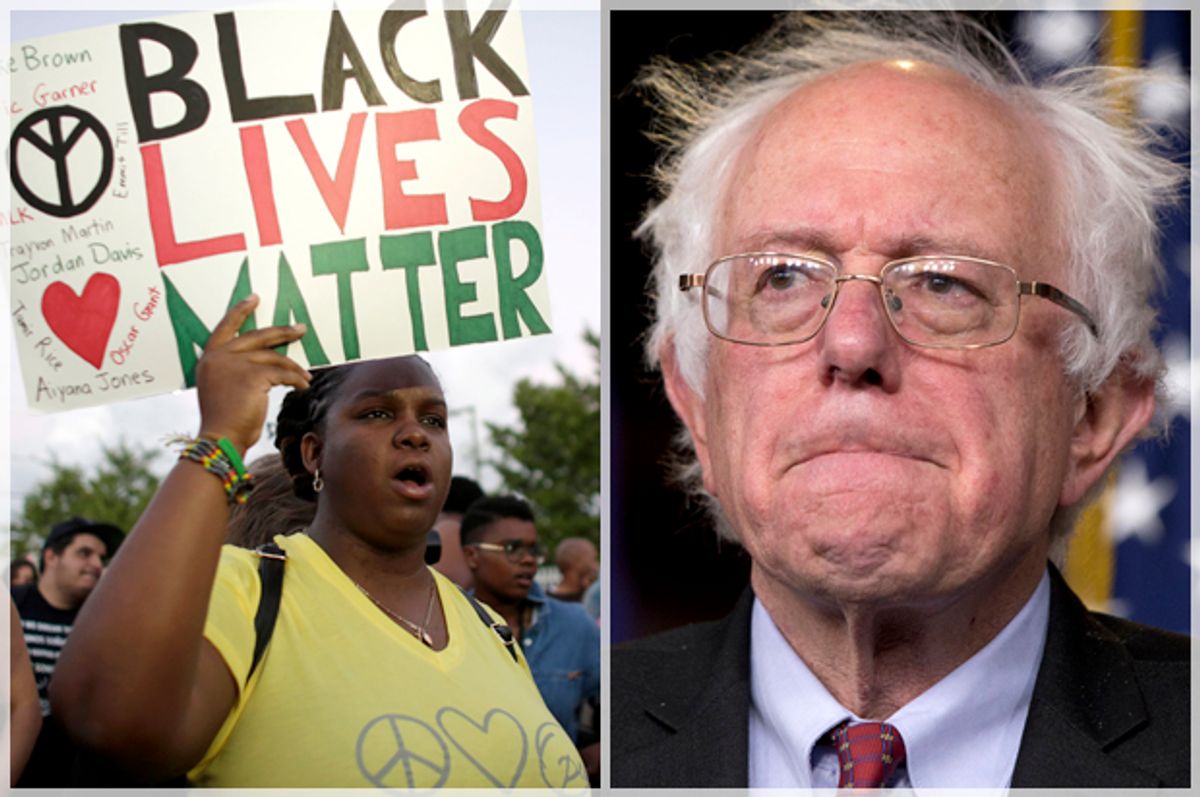At less than two percent of the population, you could perhaps understand how a statewide officeholder in Vermont may ignore the African-American population. But now that Vermont Senator Bernie Sanders has a very real shot at securing the Democratic presidential nomination, his missteps and perceived slights over his decades-long political career have come under increased scrutiny and his shortcomings with black voters in his home state particularly, have drawn renewed consideration as his campaign attempts to shore up lacking support with black voters in crucial states like South Carolina.
“He could have been a little more forceful around the race issue,” Sanders support and director of the Vermont Anti-Racism Action Team, Paij Wadley-Bailey, told the Daily Beast of Sanders' record in Vermont.
Some black leaders in Vermont appeared sympathetic to Sanders' lacking attention to the state's small, but not negligible, African-American population. “You don’t know what you don’t know, and he hasn’t had to be accountable to communities of color before,” said another African-American Sanders support in Vermont, Shela Linton.
Still, as Sanders campaigns in places like Atlanta alongside black rappers like Killer Mike and vows to end mass incarceration while speaking with black voters in South Carolina, his own record on improving the lives of black voters in Vermont is less clear.
“Racial profiling is a fact of life here," said Vaughn Carney, a black lawyer in the state who has supported Sanders in every election but plans to vote for Hillary Clinton for president.
"Vermont incarcerates people at the fourth highest rate in the U.S., but no one talks about that. I have been beating on that drum for a while now, and I hoped that Bernie would up that mantle, but he has not. He is like a lot of Vermonters who like to congratulate themselves on how progressive they are but sweep these issues under the rug.”
Carney said that he and other black leaders in the state often turned to Vermont's other senator, Patrick Leahy, for matters pertaining to the community.
“Overall we felt as though Sen. Leahy was interested in keeping informed on our issues,” Carney said of the Senate Judiciary Chairman who often deals with criminal justice legislation. “We put out an all-points bulletin to our congressional delegation. Leahy responded and was instrumental in drawing attention to it. We got no response back from the other senator’s office, which was an indication that civil rights was not his top priority.”
"I think Bernie tends to run away from racial and ethnic issues,” Carney concluded.
Other black activists in Vermont echoed Carney's conclusion that Sanders was more comfortable eschewing matters of race in favor of a more general focus on economics -- a habit he was heavily criticized for early in his presidential campaign by the likes of Black Lives Matter. Sanders has since beefed up his racial and social justice platform, picking up crucial African-American endorsements and hiring black activists to join his campaign, but some black leaders in Vermont argue that Sanders has had more than enough time to warm himself to black voters before this presidential election.
Curtiss Reed Jr. executive director of the Vermont Partnership for Fairness and Diversity, recounted a 2006 candidate forum for the open U.S. senate seat Sanders eventually won. To Reed's surprise, Sanders “was just really dismissive of anything that had to do with race and racism, saying that they didn’t have anything to do with the issues of income inequality.”
“He just always kept coming back to income inequality as a response, as if talking about income inequality would somehow make issues of racism go away.” Reed complained that Sanders seemed to handle black activists in Vermont with "benign neglect.”
“We are a major statewide organization. It would stand to reason that you would check in with your major constituents, but voters of color are simply not on his radar.”
Issues like reparations, for instance, which Sanders' sharp focus on income inequality has led prominent black intellectuals like Ta-Nehisi Coates to question Sanders' opposition, is not something the Vermont senator has to deal with only after entering a national race. It has been a longtime issue in Vermont as well.
Sha’an Mouliert, an activist who founded the African-American Alliance of the Northeast Kingdom, recalled once approaching Sanders for his support on a federal bill sponsored by Michigan Rep. John Conyers. Mouliert says Sanders outright dismissed the notion of reparations on the spot.
“I felt completely negated. Like I was invisible,” she recalled. Mouliert said she also invited Sanders to speak at her organization but complained that Sanders never rescheduled after canceling his initial visit.
For his part, Sanders asks black voters in South Carolina and beyond to look at his history as an activist, not senator of Vermont, to judge his record on race.
"I believe when the African-American community in South Carolina and around the country understands that I have one of the strongest civil rights records in Congress and was involved in the civil rights movement for many years before I went to Congress, they will respond," Sanders told MSNBC's Chris Hayes back in September.
But even for some sympathetic black leaders in South Carolina, that may not be enough. In the Real Clear Politics average of polls of the Palmetto State, Clinton leads Sanders by 20 percentage points. 2014 Senate nominee Joyce Dickerson, argued that Sanders is too far behind wooing African-American voters to catch up now.


Shares